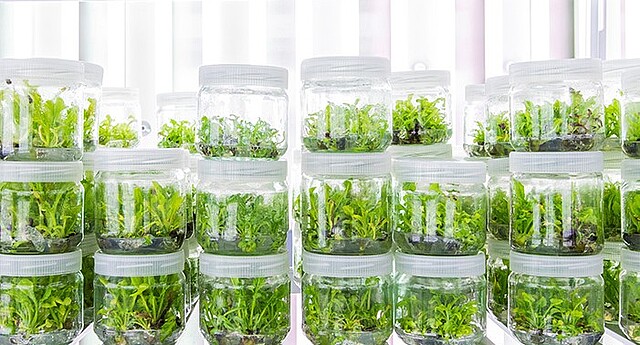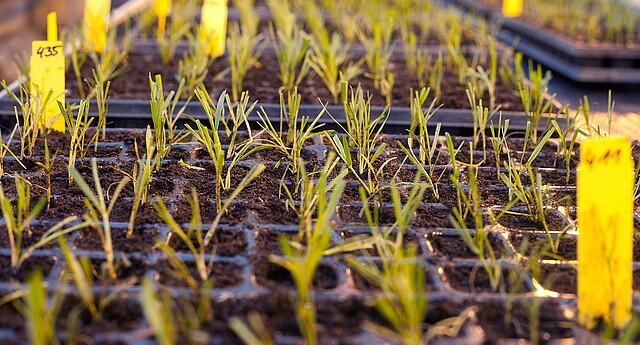Progress in breeding

New breeding techniques are constantly being developed in the field of plant breeding. Methods such as ODM, TALEN or CRISPR/Cas belong to precision breeding and hold great potential. They can be used to accelerate progress in plant breeding and significantly shorten the time-to-market for new varieties.
The methods offer the possibility of inserting changes in genes with pinpoint accuracy and thus producing urgently needed new or improved breeding traits. The result is that agricultural challenges can be met better. These range from new disease resistances that enable sustainable cultivation while limiting the use of chemical pesticides, to yield stability under increasingly unfavourable climatic conditions.
New breeding techniques at Strube
New breeding techniques have the potential to contribute to sustainable, environmentally friendly agriculture. At Strube, we recognise the great opportunities that new breeding techniques represent for progress in breeding - but we are also aware of the reservations against the new techniques.
We therefore participate in research projects together with academic partners that deal with new breeding methods. In line with our VisionBlue strategy, we focus on projects that are particularly geared towards sustainability and resource conservation in agriculture.
Research projects to new breeding techniques: DIVHA, ENABLE und PILTON
While more and more countries around the world are exempting certain types of new breeding techniques from strict legal regulation, strict rules apply in the EU: New breeding technologies are subject to the same regulations that apply to genetically modified organisms (GMOs). However, the Council of the European Union has asked the European Commission to present a study on the "Status of Novel Genomic Techniques under Union Law" by the 30th of April 2021, so the topic is still under discussion in the EU as well as in the public.
We at Strube are following the further development of the discussion and the legal situation in the EU in order to be able to continuously advance our breeding program within the legal framework.




